SUMMARY
This is AI generated summarization, which may have errors. For context, always refer to the full article.
![[OPINION] No, we shouldn’t celebrate 500 years of Christianity in our country](https://www.rappler.com/tachyon/2021/03/imho-dont-celebrate-500yr-christianity.jpg)
No, we shouldn’t celebrate 500 years of Christianity in our country. To do so would be to spit on the memory of our ancestors. To do so would be to bury their dream for freedom — a dream that we are yet to fully realize.
It’s a brazen thing to say, but somebody has to say it. Growing up as something of a history junkie, then a mere child who would often peer through his father’s copy of Sonia Zaide’s The Philippines: A Unique Nation, I know the story all too well.
Almost like a children’s storybook, A Unique Nation tells the tale of an epic adventure: on the 16th of March in the year 1521, a fleet of European “explorers” first laid their eyes upon an uncharted patch of land during a voyage that would go down in history as the first circumnavigation of the Earth. This very patch of land is what we now know today to be Samar, and the commander of that “expedition” — Ferdinand Magellan — has since become the face of the island’s so-called “discovery.”
Such a story has been a fixture in my mind for the longest time — nowadays a great source of abhorrence, having grown older and (hopefully) wiser. Back in my youth, when my perceptions were as malleable as clay, I had always felt some sort of mystical fascination — a sort of misplaced pride — with the Spanish sighting of Samar.
A born and bred Samarnon myself, then a child in Catholic school whose curiosity was limitless, I suppose it was inevitable. It was such a joy back then to think that Samar had a place of prominence in our nation’s history, given that I would never hear about it anywhere else — never in the evening news, nor in song, film, or story. To me, back then, the sighting was our moment in history — the moment when the spotlight was on my homeland, and I could only assume that a great many others share this very same sentiment today.
Beyond the circumnavigation and its scientific merit, however, lies another subplot that would sharply shift the direction of our nation’s story: the introduction of Catholicism. Armed with their crosses and prayers to guide their swords and shields, the imperialists were led to circle the Earth for “God, gold, and glory” — a phrase that I still remember vividly from Zaide’s book. Long story short: Spain and Portugal were competing for spices, the Papacy stepped in as mediator, and the two maritime powers were given their own halves of the world under the condition that evangelization should accompany their plunder.
To say, therefore, that it was fate’s desire to lead the Filipino to Christ’s embrace would be an immense euphemism at best; we are who we are today due to mere circumstance, due to Europe’s desire for spices. Evangelization was just a footnote to an imperialist scavenger hunt, not the realization of a divine plan.
500 years hence, and we now come together to grapple with our complicated history. I suppose a great many of us are eager to celebrate this “quincentennial” of Philippine Christianity; I know my fellow Waray are, at least. The excitement is quite palpable — you can see people taking selfies with the quincentennial’s logo while counting down the days on Facebook. I guess many of us still believe in what I once had, that the sighting was our moment in history.
To treat its commemoration with such joy, however, would be to erase the chapters that had come afterward — the story of a people who became slaves in their own homeland, the story of a people who were forced to bow down to the white man.
More often than not, I myself have grappled with the idea of a celebration, or even a mere “commemoration,” of Christianity in this country. I shouldn’t have to list down the colonizers’ sins, but it would be a mistake to ignore the intertwine between the colonizer and his faith. Patricio Abinales and Donna Amoroso, in State and Society in the Philippines, provide much vivid detail to this: the fact that native populations were “coaxed or coerced” to live around the white man’s church (a structure “built with tribute and unpaid labor”); the fact that existing religions — potential threats to the new colonial order — were butchered, wherein the priests themselves had taken the lead in the “destruction” and “desecration” of native anito; the fact that religious leaders, particularly the “baylan,” were “rooted out, humiliated, punished, and exiled…not only to discredit and eliminate competitors but also to reorder gender relations” into a system of misplaced male primacy.
These are a mere handful of their many wrongs, but one thing seems clear to me: the story of Christianity in this country is deeply interwoven with the story of imperialist oppression; to celebrate its arrival, therefore, would be to cleanse it of its role in the centuries that had come afterward.
Nevertheless, 500 years have come and gone. We are nowhere near Spain’s grip anymore, and one could contend that pressing it for its crimes would be a lost cause. It would be easy to say that we should forgive our colonizers for their sins, that we should “let bygones be bygones,” yet the times demand that we should never forget them. Even until now, we still find ourselves wrestling with the demons of imperialism: foreign powers encroaching upon our own shores, indigenous communities being slaughtered for the wealth of their land, whole sectors of our economy being marketed for foreign coin, and peaceful dissent being stifled by the barrel of a gun.
The problems we face today are, in effect, mutations of what our ancestors had to deal with centuries ago; to let it all slide, therefore, would not only be a grave insult to them, but would also be an open invitation for even greater oppression.
As we come together to deal with these conversations, the consequences of our history, I would suppose that one question supersedes all of the others: what is this celebration for? Are we celebrating the Cross’s arrival as a symbol of salvation, or are we celebrating its gross misuse as a tool for power?
Don’t get me wrong though — I do believe that it is possible to separate one from the other. It is possible to celebrate one’s god (or gods) without having to exalt the institution that preaches his, or her, or their way of life — a way often bent by humankind to promote the interests of a select few. In fairness, however, to the modern Filipino Church, it is certainly not the same institution as that of the friars of yore; nevertheless, it is still as great a sin to prance around and act as if nothing bad had happened.
Once again, I hereby make my case: we shouldn’t celebrate 500 years of Christianity in our country. Tell me: was it all worth it? For every ancestor slashed with a sword or shot with a musket, has the faith been worth it all in the end? – Rappler.com
Nicolas Faller, Jr., 21, is a BS Industrial Engineering student at the University of the Philippines Diliman. He likes to philosophize about the parallels between Philippine politics, life in the provinces, and the Final Fantasy video game series, among other things. He is a Rappler intern.
Add a comment
How does this make you feel?

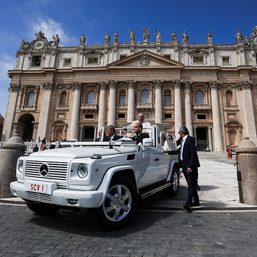

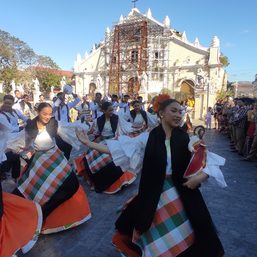
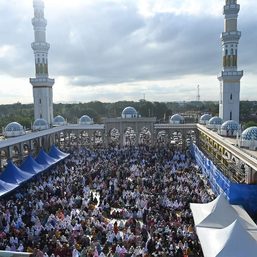
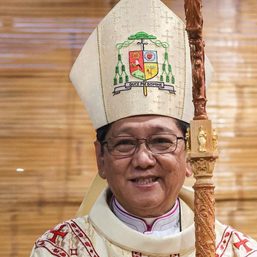


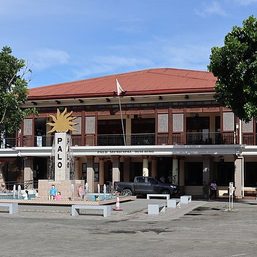

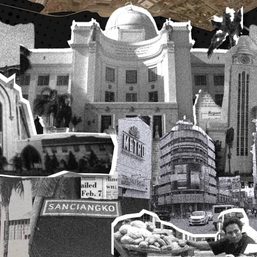
There are no comments yet. Add your comment to start the conversation.